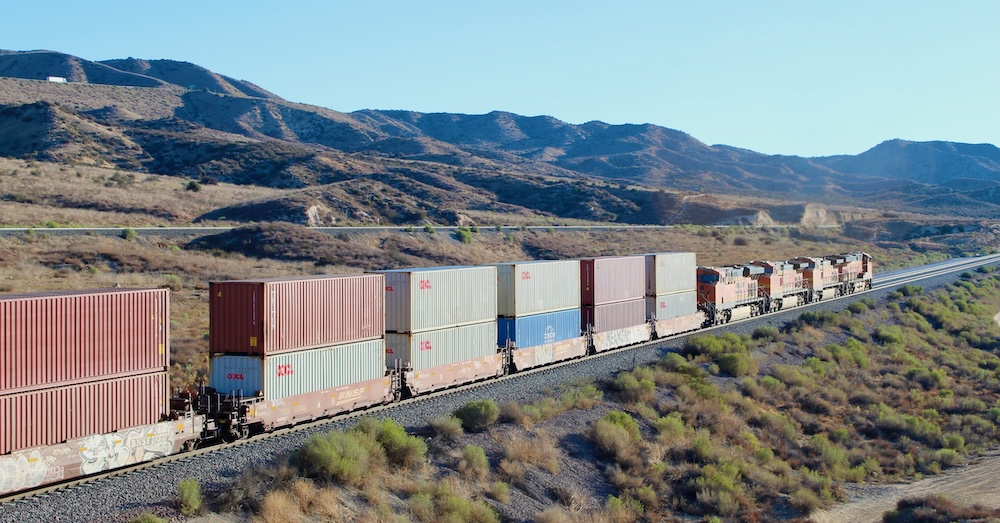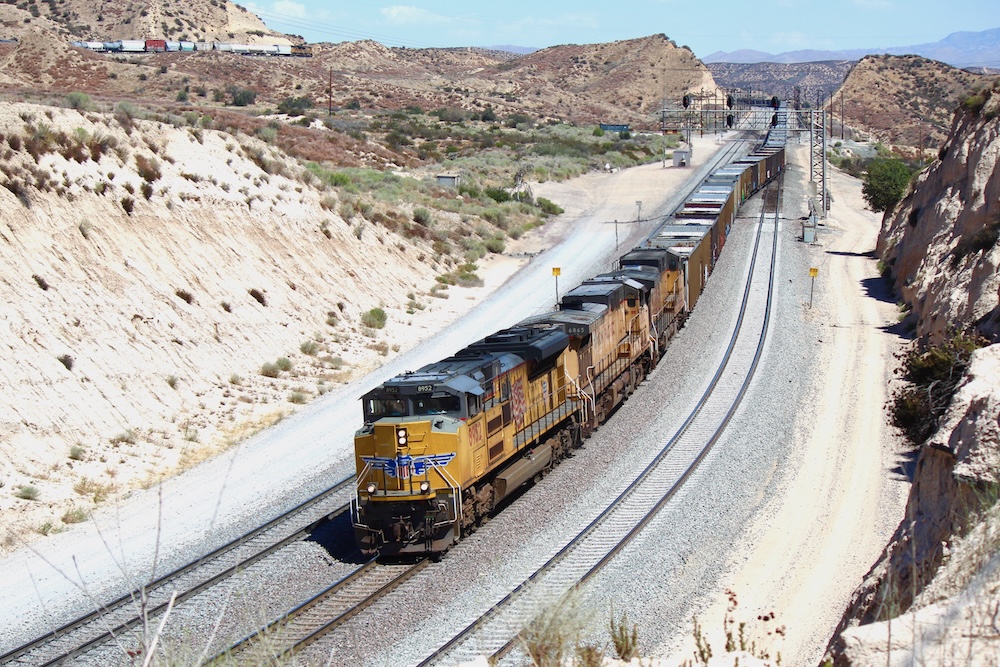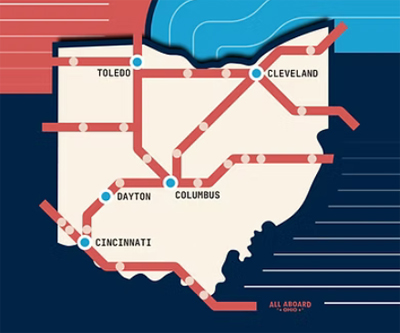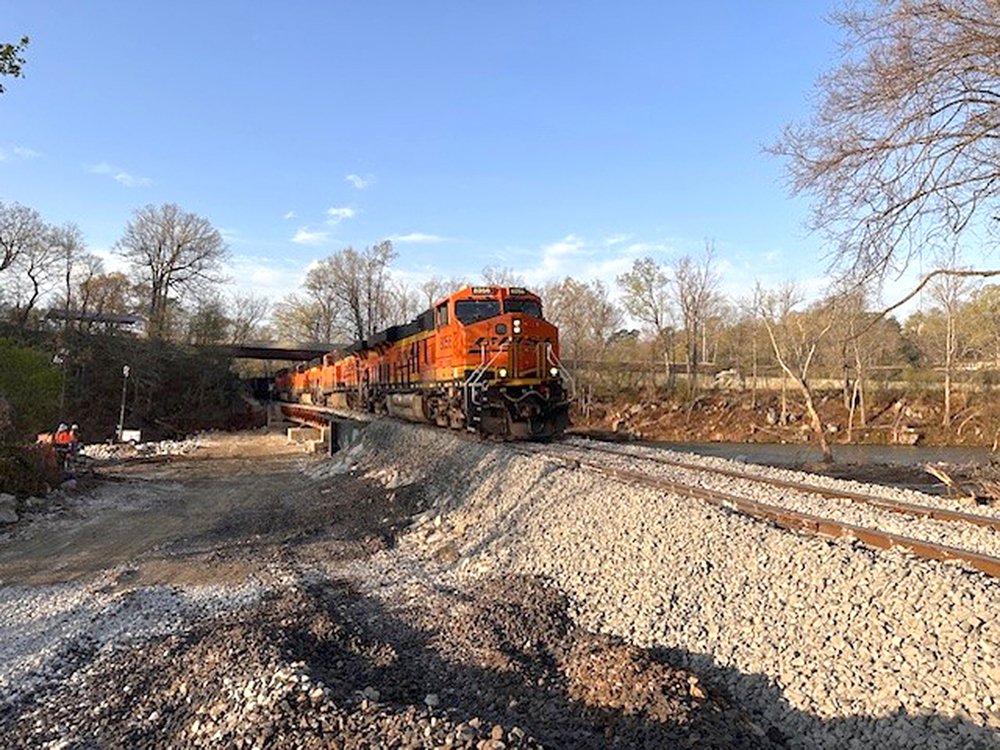WASHINGTON – Canadian National says it now has more than 1,700 letters of support for its proposed merger with Kansas City Southern.
But in a flurry of regulatory filings submitted before a deadline on Monday, opposition grew to CN’s plan to put KCS in a voting trust while the merger is under review. Major shipping associations, rail labor, Amtrak, and spurned KCS suitor Canadian Pacific all wrote the Surface Transportation Board urging it to reject CN’s voting trust application.
The voting trust is an important first step in the merger process. Once KCS is placed into a voting trust, KCS investors will receive the equivalent of $325 per share in cash and CN shares. While in trust, KCS also would be operated independently while the STB reviews the merger over the next year or so.
Shippers
The National Industrial Transportation League, the largest and oldest shipper association, said it was opposed to the voting trust, noting that its members are against further consolidation in the rail industry due to concerns about service and competition. But the NITL said it had not yet decided whether it opposed the acquisition of KCS by CN or any other railroad.
The NITL also urged the STB to further define the terms “enhanced competition” and “improved service,” both of which must be addressed as part of any Class I railroad merger under the board’s current rules. The group said it was talking with CN, KCS, and CP about these standards but was not yet able to reach an agreement, and asked the board for 10 more days for comments and replies.
In similar letters, chemical and fertilizer shipper groups urged the board to reject the voting trust. The American Chemistry Council and The Fertilizer Institute argue it is not in the public interest, but the groups said they remained neutral on the proposed merger itself.
Rail Labor
SMART-TD legislative directors in Illinois, Kansas, Louisiana, Mississippi, Missouri, and Texas oppose CN’s voting trust proposal. “If the CN voting trust and proposed merger were granted approval, we fully expect significant job losses on either CN or KCS because ultimately the transaction would require either a sale or abandonment of duplicative rail lines,” they wrote.
The union leaders backed a CP-KCS merger, which they said was a true end-to-end combination that would lead to job growth for their membership.
SMART employees of CP and KCS also opposed the voting trust, as did CP’s Soo Line engineers represented by the Brotherhood of Locomotive Engineers and Trainmen.
Amtrak
Amtrak opposed the voting trust, saying it had concerns about CN’s plans to sell the KCS line linking Baton Rouge and New Orleans, which closely parallels CN’s own route.
Louisiana has identified the Baton Rouge-New Orleans corridor as its highest priority route for the introduction of passenger service. A CN-KCS merger “creates a major new impediment” to launching new passenger service, Amtrak said.
CN plans to sell the line but retain operating rights over it, which Amtrak said would introduce operational complexity. “CN’s divestiture proposal is the equivalent of a homeowner selling their house but reserving the right to continue to live in it,” Amtrak said.
The passenger railroad urged the STB to order CN to sell the KCS Baton Rouge line to a government or a government-owned entity. An independent operator then could provide freight service while permitting Amtrak’s proposed operations over the route.
Freight railroads
CSX Transportation – itself involved in a proposed merger, the acquisition of New England regional Pan Am Railways – took no position on CN’s trust request but said that in general permitting railroads to use trusts is in the public interest because they reduce costs and level the playing field among bidders that may include those outside the rail industry.
Genesee & Wyoming, the largest short line holding company, backed CN’s voting trust proposal.
CP continued its fight against a CN-KCS merger with a 68-page filing that argues CN did not meet the legal standards for a voting trust.
“Approval of CN’s proposed voting trust would be particularly unwarranted in this unique case, which is both the first-ever test of the Board’s 2001 merger rules and a situation where CP will be presenting the Board with a concrete alternative that would offer the public all of the same benefits without any of the competitive and other public interest harms,” CP said in urging the board to reject CN’s application.
Next steps
CN told the STB that the latest round of letters backing its KCS deal includes support from Arkansas Gov. Asa Hutchinson, Kansas City, Mo., Mayor Quinton Lucas, and multiple other state and local leaders.
“Today’s round of support letters continues to demonstrate the incredible level of support shown by CN and KCS partners, customers, and government and community leaders,” CN said. “CN and KCS will continue to engage with industry stakeholders about the proposed CN-KCS combination and the tremendous public interest benefits it will bring by creating the premier railway for the 21st century with a single network across Canada, the United States, and Mexico.”
The STB has said it wants to take a cautious approach to CN’s request to put KCS into a voting trust while their $33.6 billion deal is under review. The STB’s procedural schedule makes it unlikely the board will decide the voting trust matter before late July.
CN has until July 6 to reply to all comments regarding the voting trust proposal.














CP has the best record of running Amtrak trains on the advertised.
Regarding the KCS merger, Amtrak is against CN but not for CP? It would be in CP’s interest to cut a deal with Amtrak on future Baton Rouge – New Orleans passenger service in exchange for Amtrak’s support of the CP’s acquisition of KCS. If acquiring the KCS is a survival issue, CP needs all the allies it can get.
This kind of fiasco is what we get as a country because we have no either broad based or narrow based transportation policy. A policy does not necessarily mean a straight jacket, but would be an outline and direction for where intend our economy to go. We have now only a series of ad hoc actions in all areas of transport; some work well and many do not (not just in the rail sector). I am very skeptical that any of the Mega Mergers of the last 30 or so years have really benefited the country and economy as a whole although the financial sectors have often done well from the mergers.
This gets curiouser and curiouser.
What’s missing from all of this? Absolutely no work from Mexico. Ignoring our southern neighbors is not a good idea.
Mexico is not a party to this proceeding…it’s between a Canadian corporation and a U.S. corporation, and since the transaction takes place solely within the U.S. corporate wise that’s the reason it’s under STB jurisdiction. No whining about KCS de Mexico, that’s a concession, they don’t own anything except motive power and maybe some rolling stock…everything else remains property of the Mexican government.
All true, but the Mexican government is in a position to say “We made a deal with some nice Americans from the mid-west, not these Canadian interlopers from Montreal; so take your engines with their wet noodle on the side and get out!” What’s KCS+CN worth without KCS-de-Mexico? That gives the Mexican government de-facto veto power over the deal, and they have not given any opinion publicly. At least, not yet….
This is turning into a real donnybrook, with far-reaching implications for the entire industry.